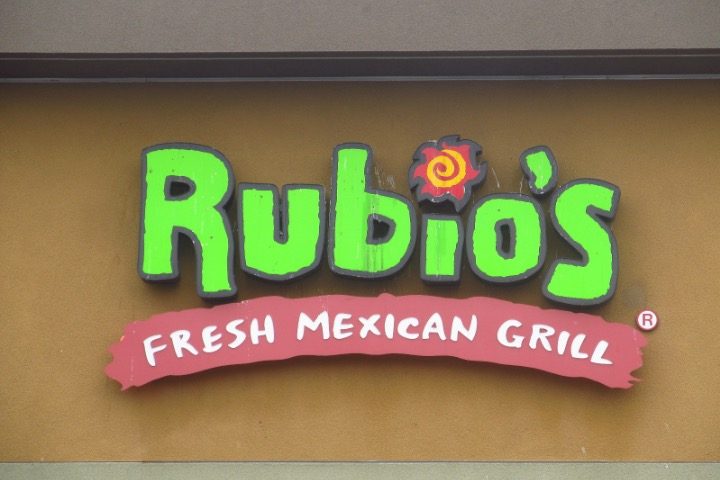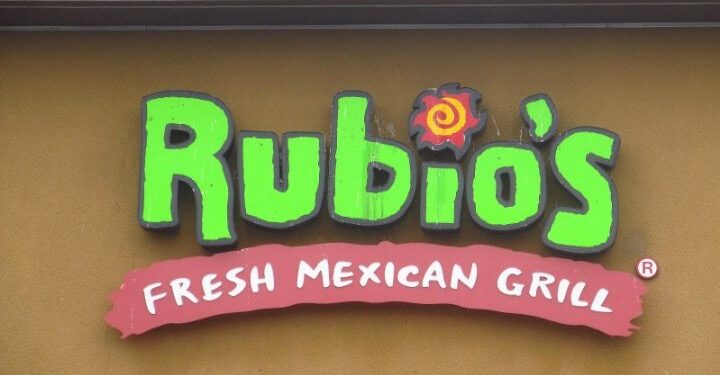
Under the theory that all the government must do to help employees earn more money is order businesses to pay a higher wage, last year California hiked the minimum wage for fast-food workers to $20 per hour, effective in April this year.
For about a month, fast-food workers at Rubio’s Coastal Grill, a popular fish taco chain, earned more money. Now, employees at 48 of the 86 Rubio’s stores earn nothing because those locations closed.
The stores weren’t making enough money, the chain announced.
The wage hike mightn’t be the only reason the company, which declared bankruptcy in 2020, closed the stores. But jacking up the minimum from $16 to $20, a 25-percent hike, didn’t help.
Other fast-food chains have raised prices to counter the effects of the galactically imprudent legislation.
And thanks to Joe Biden’s inflationary economy, many Americans now consider fast food a luxury.
The Closures
As NBC affiliate KTLA5 in Los Angeles reported, the smashingly successful company opened its first restaurant in 1983 in San Diego when founder Ralph Rubio “was inspired by a Spring Break visit to San Felipe, Baja California, where he first encountered the fish taco”:
Over the next 30 years, the company expanded throughout California and beyond with locations in Arizona, Nevada, Utah, Colorado and Florida. That expansion, however, was abruptly halted by the pandemic and all Florida, Utah and Colorado locations were closed by late 2020 — the same year Rubio’s filed for bankruptcy protection.
At one time, the company operated more than 200 stores. But after the China Virus bankruptcy in 2020, the company was down to 170 in Nevada, Arizona, and California, Restaurant Dive reported that year.
Now, with the 48 locations closing, just 86 remain.
“Rubio’s is among the first regional restaurant chains to close a high number of stores following California’s implementation of the $20 minimum wage for fast-food chains with 60 or more units,” the website reported of the closings:
Mod Pizza closed 27 stores nationwide earlier this year, but only five were in California. Other brands, including Chipotle, Domino’s, Shake Shack and Portillo’s, have increased prices and are looking at labor-saving technology like kiosks in reaction to the state’s increased labor costs.
The company released a statement suggesting the wage hike is at least partly to blame, ABC7 in Los Angeles reported.
“Making the decision to close a store is never an easy one,” the company said. “The closings were brought about by the rising cost of doing business in California. While painful, the store closures are a necessary step in our strategic long-term plan to position Rubio’s for success for years to come.”
Higher Prices
Other restaurant chains are sure to follow. Restaurant Dive surveyed fast-food companies and found that they jacked up prices to counter the 25-percent wage hike.
“Pricing strategy has become a careful balancing act this year as several chains, including McDonald’s, have seen pushback from consumers,” the website reported:
Brands like El Pollo Loco, Jack in the Box and [Shake] Shack have been rolling out kiosks to free up labor, upsell menu items and raise average checks — elements that benefit the brands not just in the Golden State, but nationwide.
Jack in the Box raised prices 5 percent, and the restaurant’s freestanding kiosks are bringing in receipts that are 15 to 20 percent higher and saving four to six hours a week in labor.
Wages at Chipotle rose 20 percent, and so “the chain hiked menu prices by 6% to 7% across its Golden State restaurants just to cover the cost,” Restaurant Dive reported.
“Domino’s increased prices in the high-single digits in California following the wage increase,” the website continued, while Shake Shack also raised prices, along with Portillo’s and Denny’s.
Contrary to what leftists believe, companies don’t pay the cost of the higher wages. Consumers do, for the cost of those wages is covered by higher prices.
Fast Food a Luxury
As for fast food in general, this headline ran over a story at Lending Tree: “Nearly 80% of Americans Say Fast Food Is Now a Luxury Because It’s Become So Expensive.”
A survey of 2,000 Americans revealed that 65 percent are shocked by the high price of fast food, and 78 percent consider it a luxury as “it’s become increasingly expensive”:
Additionally, half of Americans say they view fast food as a luxury because they’re struggling financially. This is especially true among Americans who make less than $30,000 a year (71%), parents with young children (58%), Gen Zers (58%) and women (53%).
Not surprisingly, 65 percent of those polled reported “sticker shock” when they received the bill.
Yet consumers aren’t the only Americans adversely affected by the high prices.
Employees are too, apropos of the newly mandated minimum wage in California. They pay the price when they’re fired because restaurants can’t turn a profit if forced to pay a 17-year-old high-school junior a yearly salary of $41,600 based on a 40-hour week.
H/T: Food & Wine

































 Reaction & Commentary
Reaction & Commentary














